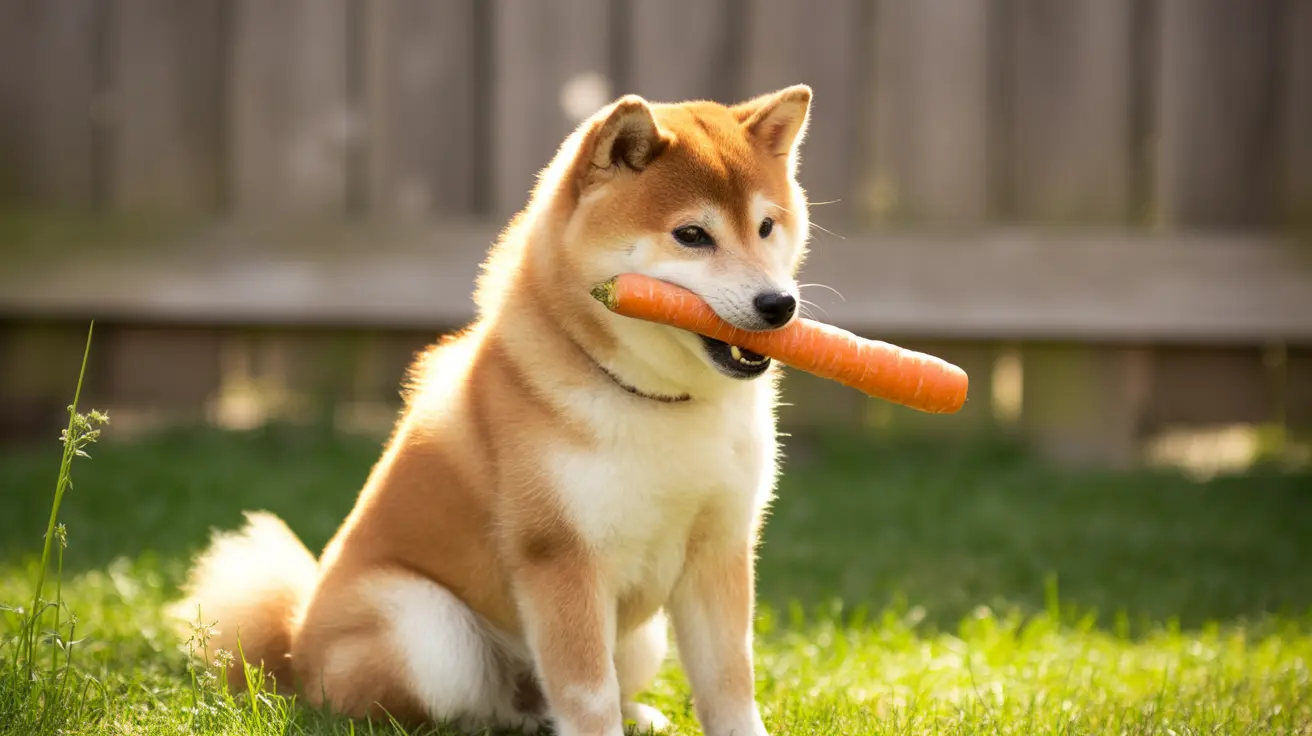As pet owners increasingly seek nutritious alternatives to commercial dog treats, carrots have emerged as a popular choice. But are carrots good for dogs? The simple answer is yes - carrots are not only safe but also packed with essential nutrients that can benefit your canine companion in numerous ways.
This comprehensive guide will explore everything you need to know about feeding carrots to your dog, from their nutritional benefits to proper serving methods and potential considerations.
The Nutritional Benefits of Carrots for Dogs
Carrots are a powerhouse of nutrients that can support your dog's overall health. These crunchy vegetables are rich in beta-carotene, which converts to vitamin A in your dog's body, supporting vision, immune function, and cell growth.
Key nutritional benefits include:
- Low in calories (53 calories per cup)
- High in dietary fiber (3.58g per cup)
- Rich in vitamins A, K, and potassium
- Contains both soluble and insoluble fiber
- Natural source of antioxidants
How Carrots Support Your Dog's Health
Dental Health Benefits
Raw carrots can serve as natural tooth cleaners for dogs. The crunchy texture helps remove plaque buildup and promotes better oral hygiene. For teething puppies, frozen carrots can provide relief while offering nutritional benefits.
Weight Management
With their low calorie content and high fiber levels, carrots make excellent treats for dogs on weight management programs. They provide satisfaction and nutrients without contributing significantly to daily caloric intake.
Vision and Immune Support
The high vitamin A content in carrots supports healthy vision and immune system function. Beta-carotene and other antioxidants help protect cells from damage and may contribute to better skin and coat health.
Safe Serving Methods and Portions
Preparation Guidelines
To safely serve carrots to your dog:
- Wash thoroughly to remove dirt and pesticides
- Cut into appropriate sizes based on your dog's size
- Consider steaming or cooking for easier digestion
- Remove any green tops before serving
Portion Recommendations
As a general rule, treats should not exceed 10% of your dog's daily caloric intake. For most dogs, 1-2 baby carrots or several small pieces of chopped carrot per day is appropriate. Larger dogs can safely consume more, while smaller breeds should receive proportionally less.
Potential Risks and Precautions
While carrots are generally safe, there are some considerations to keep in mind:
- Choking hazards for small dogs or fast eaters
- Possible digestive issues from excessive consumption
- Natural sugar content (important for diabetic dogs)
- Rare but possible allergic reactions
Frequently Asked Questions
Are carrots a healthy treat for dogs and what vitamins do they provide?
Yes, carrots are a healthy treat for dogs. They provide vitamin A, vitamin K, potassium, and fiber. The beta-carotene in carrots supports vision health, while antioxidants help boost immune function.
How should I prepare and serve carrots safely to my dog to avoid choking?
Cut carrots into appropriately sized pieces based on your dog's size. For small dogs, grate or finely chop carrots. For larger dogs, cut into bite-sized chunks. Always supervise your dog while eating carrots.
Can raw and cooked carrots both be given to dogs, and which is better for digestion?
Both raw and cooked carrots are safe for dogs. Raw carrots provide better dental benefits and maintain more nutrients, while cooked carrots may be easier to digest. Either option is acceptable based on your dog's preferences.
How many carrots can I feed my dog daily based on their size and weight?
Treats should comprise no more than 10% of daily caloric intake. Small dogs can have 1-2 baby carrots per day, medium dogs 2-3, and large dogs 3-4. Adjust portions based on your dog's size and activity level.
Are there any health risks or conditions where carrots should be avoided or limited in a dog's diet?
Dogs with diabetes should have limited carrot intake due to natural sugars. Dogs prone to digestive issues should start with small amounts. Always consult your veterinarian if your dog has specific health conditions or dietary restrictions.
Conclusion
Carrots are a nutritious, low-calorie treat option that can benefit your dog's health in multiple ways. When served properly and in appropriate portions, they make an excellent addition to your dog's diet. Always introduce new foods gradually and monitor your pet for any adverse reactions.






